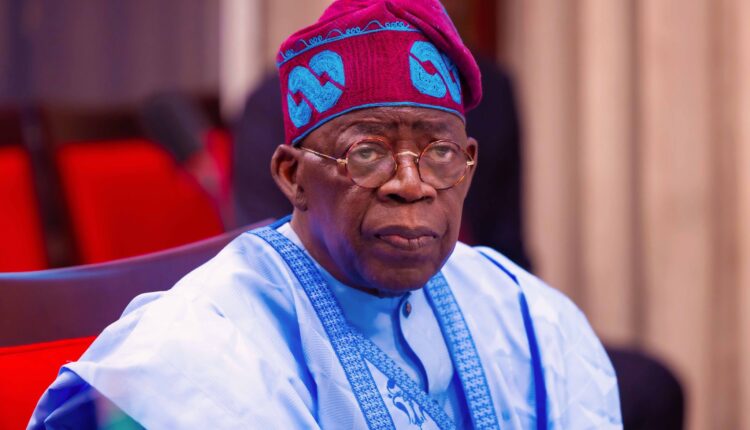Naira slump, Tinubu’s loans push public debt to N121tn, See details
Depreciation and Rising Loans Push Nigeria’s Public Debt to N121tn
Nigeria’s economic landscape faces mounting challenges as the country’s total public debt has escalated to a staggering N121.67 trillion. This marks a significant increase of N24.33 trillion, or 24.99 percent, within just three months, according to the latest report from the Debt Management Office (DMO). The sharp rise underscores the profound impact of naira depreciation and the extensive borrowing undertaken to address budgetary deficits and financial exigencies.
Naira Depreciation’s Role in Debt Increase
As of December 2023, Nigeria’s total public debt stood at N97.34 trillion ($108.23 billion). However, by the end of March 2024, this figure had surged to N121.67 trillion ($91.46 billion). This dramatic rise is primarily attributed to the depreciation of the naira. The official exchange rate used to convert external debts to naira shifted from N899.39/$ in December 2023 to N1,330/$ in March 2024. Consequently, while the debt amount in dollar terms actually decreased by $16.77 billion or 18.34 percent, the naira equivalent skyrocketed, reflecting the local currency’s loss in value.
Breakdown of the Debt Composition
The total public debt is comprised of both domestic and external debts of the Federal Government of Nigeria, the 36 state governments, and the Federal Capital Territory (FCT). As of March 31, 2024, the total domestic debt was recorded at N65.65 trillion ($46.29 billion), a notable increase from N59.12 trillion in December 2023. External debt stood at N56.02 trillion ($42.12 billion).
The DMO’s report highlights that the domestic debt component saw a significant rise due to new borrowings aimed at financing the 2024 budget deficit and the securitization of a portion of the N7.3 trillion Ways and Means advances at the Central Bank of Nigeria.
State-Level Debt Concerns
In addition to the federal debt, the 36 states and the FCT have their own substantial debt burdens. Their external debt stands at $3.1 billion, with a domestic debt amounting to N4.068 trillion. This decentralized debt further complicates Nigeria’s overall financial stability and calls for coordinated efforts to manage and mitigate the risks associated with high indebtedness.
Impact of New Loans
The surge in Nigeria’s debt is also driven by significant new loans from international financial institutions. Over the past 12 months, the government has borrowed a total of $4.95 billion from the World Bank. These loans were allocated to various critical sectors, including $750 million for power sector financing, $500 million for women empowerment, $700 million for girl child education, $750 million for renewable energy solutions, $750 million for resource mobilization reforms, and $1.5 billion for economic stabilization reforms.
Lagos APC Former Executive, Ramota Bankole Dies In Mecca
Moreover, the government anticipates additional loan approvals worth $4.4 billion from the World Bank and the African Development Bank over the next year. These borrowings are essential for funding development projects, but they also add to the country’s debt servicing obligations.
Government’s Stance on Borrowing
President Bola Tinubu has acknowledged the unsustainable nature of the country’s debt levels. He has emphasized the urgent need for Nigeria to break its overreliance on borrowing for public spending. Tinubu’s administration aims to implement difficult yet necessary changes to stabilize the economy and reduce the debt burden.
In his recent statements, President Tinubu warned against the peril of using 90 percent of government revenue to service external debts, describing it as a path to destruction. He called for bold decisions to ensure that Nigeria can progress and be respected among the world’s great nations.
Economic Experts’ Warnings
Financial analysts and economists have voiced concerns about Nigeria’s escalating debt. Bismarck Rewane, CEO of Financial Derivatives Company, highlighted in a report titled “2024: The Hard Road Ahead” that Nigeria’s debt is becoming increasingly unsustainable. He noted that the country used 99 percent of its revenue to service debt in the first half of 2023, and high interest rates in 2024 will exacerbate the debt burden.
Rewane stressed the importance of efficiently utilizing borrowed funds to ensure debt sustainability. He warned that a one percent increase in public debt could negatively impact GDP by 16.7 percent, predicting that if the public debt reaches $114.3 billion, real GDP growth could decline to 2.12 percent.
The Path Forward
While the government has signaled its intention to curb excessive borrowing, the practical implementation of this policy remains to be seen. The finance minister, Wale Edun, has advocated for a reduction in reliance on loans to stabilize the economy. However, balancing the immediate need for development funding with long-term fiscal sustainability will be a challenging task.
The current debt trajectory necessitates a multifaceted approach, including boosting revenue generation, curbing unnecessary expenditures, and ensuring that borrowed funds are channeled into productive sectors. The goal is to create a sustainable financial environment that can support economic growth and improve the quality of life for Nigerians.
Nigeria’s burgeoning public debt, exacerbated by naira depreciation and extensive borrowing, presents a formidable challenge to the country’s economic stability. While the government acknowledges the gravity of the situation, effective and timely measures are crucial to reversing the trend.
The focus must be on enhancing revenue, judicious use of borrowed funds, and implementing structural reforms to ensure that Nigeria can navigate its way out of the debt trap and achieve sustainable economic growth

